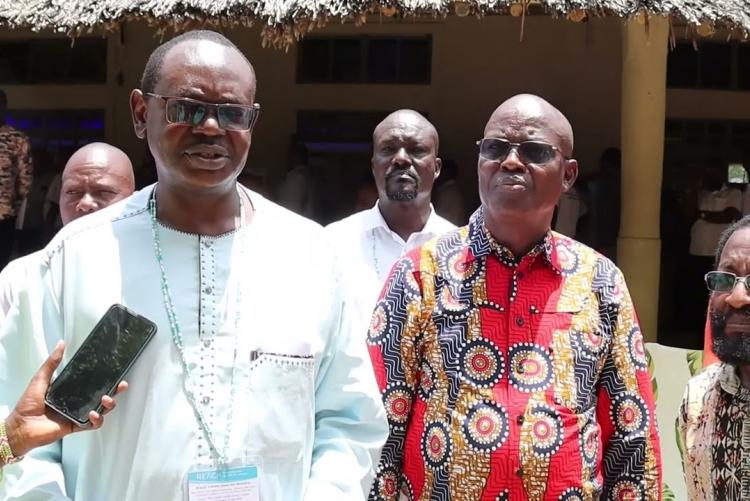The REACH Programme, a collaborative effort between the University of Nairobi and the University of Oxford, has played a critical role in tackling water insecurity in Kenya's drylands, particularly in Turkana County. This initiative, spearheaded by the UK Foreign, Commonwealth and Development Office, aims to enhance water security for over 10 million people in Africa and Asia by delivering world-class science that transforms policy and practice.
In a recent close-out workshop held in Lodwar, Turkana County Governor Jeremiah Lomorukai praised the REACH Programme for its research-driven solutions, particularly its focus on the Lodwar alluvial aquifer, including the Napuu aquifer. He noted that the programme’s efforts are crucial for sustainable water management and adaptation to climate change in this arid region, which has faced significant climate-related challenges.
One of the key figures in this partnership is Prof. Daniel Olago, Country Director of the REACH Kenya Programme and a renowned researcher from the Institute for Climate Change and Adaptation. Prof. Olago's work focuses on understanding the region's groundwater systems and how they interact with surface water sources, such as the Turkwel and Kawalase rivers. This research has been pivotal in formulating strategies to manage water resources in Turkana amidst growing climate challenges.
Prof. Olago emphasized the importance of studying the local rivers and aquifers to comprehend the water system's overall dynamics and how it serves the local population. He noted ‘’By leveraging modern tools such as piezometer stations, the REACH Programme is generating real-time data to monitor aquifer formations and groundwater levels. This data is crucial for making informed decisions that ensure long-term water sustainability in the region’’.
The University of Nairobi has emerged as a key partner in the REACH Programme, bringing extensive academic expertise and innovation to the project. Prof. Francis Mulaa, Ag. Deputy Vice-Chancellor for Research, Innovation, and Enterprise emphasized the importance of applying translational research to real-world challenges. "This project represents a critical integration of data science into earth and climate matters, paving the way for the generation of data that will directly inform water management solutions," he remarked.
The REACH Programme has also paved the way for future collaborations, with other counties in Kenya’s Arid and Semi-Arid Lands (ASALs) expressing interest in replicating the initiative to tackle their own water challenges. The success of the REACH Programme in Turkana sets a promising precedent for scaling up efforts to address water insecurity across Kenya.
In conclusion, the REACH Programme's collaboration with the University of Nairobi and its focus on sustainable water management in Turkana demonstrates the power of research and partnerships in addressing critical environmental challenges. As the programme continues to generate insights and solutions, it remains a cornerstone in the fight against water insecurity in Kenya's drylands.
This partnership not only enhances the region’s resilience to climate change but also highlights the role of academic institutions in driving impactful solutions for society's most pressing issues.
By building upon the achievements in Turkana, the REACH Programme promises to extend its benefits to other vulnerable regions, ensuring a more secure water future for Kenya and beyond.

